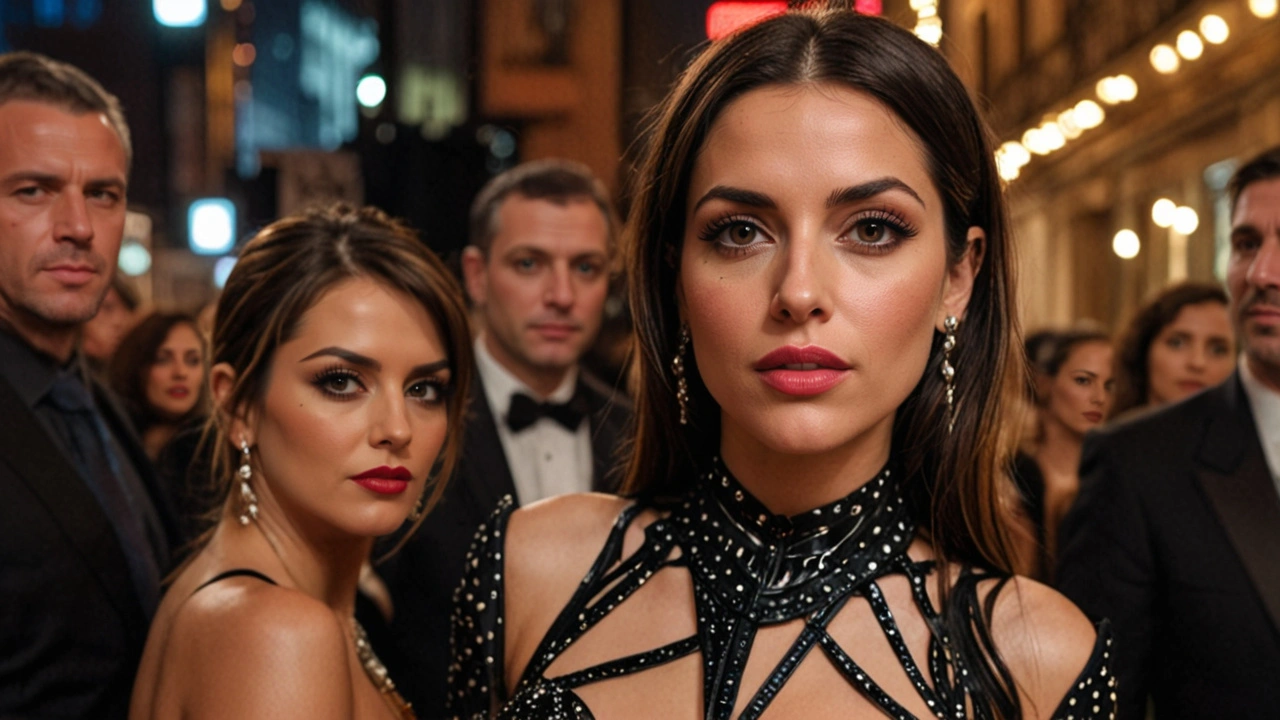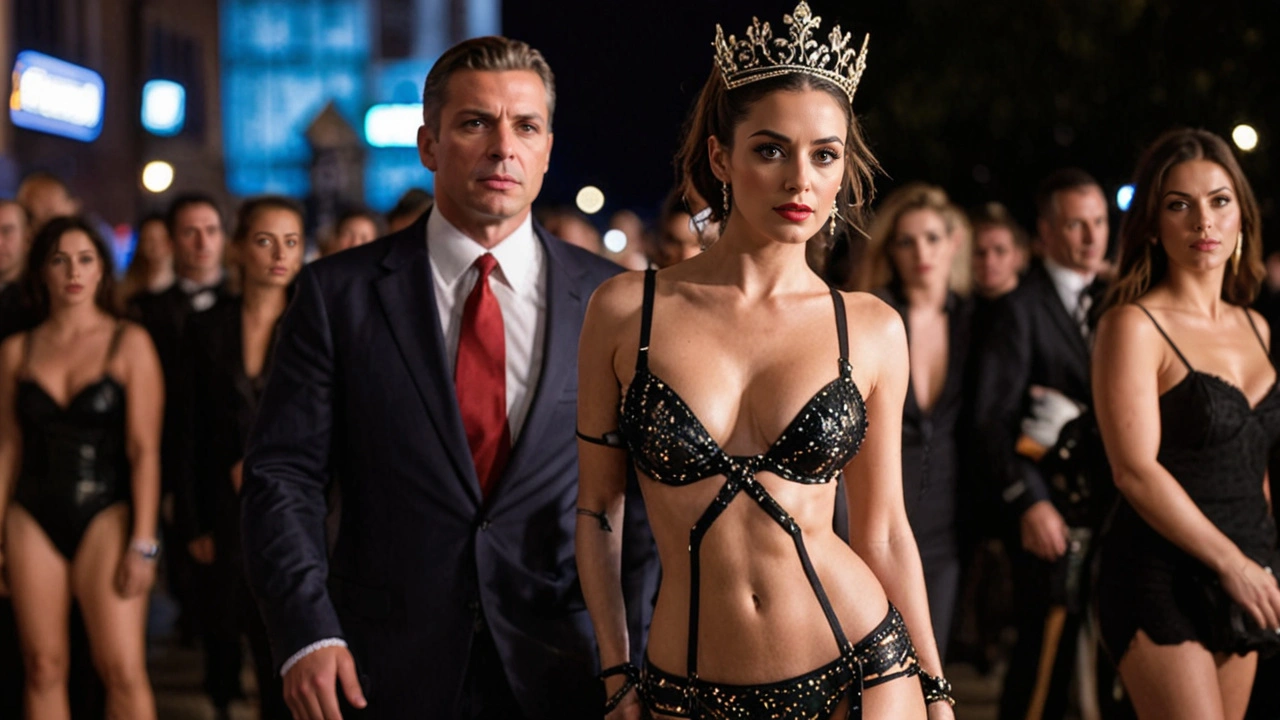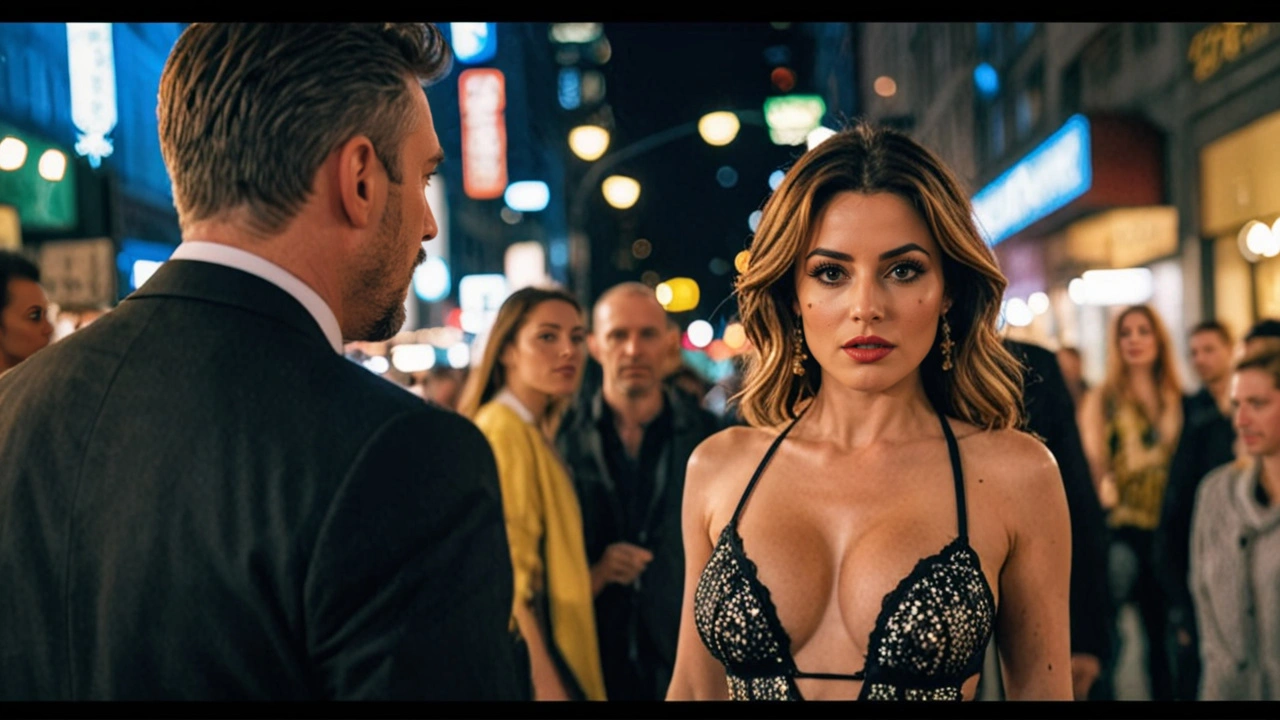Bianca Censori's Bold Fashion Choices Stir Controversy and Legal Concerns
Bianca Censori, a 29-year-old Australian architect and the wife of globally renowned rapper Kanye West, has once again found herself at the center of public scrutiny and potential legal troubles. Her recent outing in Los Angeles, where she chose to wear a completely see-through netted top, has ignited a firestorm of controversy and raised questions about public decency and legal ramifications.
On Monday, Censori visited the Melrose Tanning Company salon in a daring outfit that left nothing to the imagination. The netted top she wore exposed her breasts entirely, causing an uproar among onlookers and triggering discussions on social media. Many have questioned whether Censori's choice of attire was an act of personal freedom or a blatant disregard for societal norms and legal boundaries. Under California Penal Code Section 314(1), indecent exposure is a criminal offense that carries severe penalties. If convicted, Censori could face up to six months in county jail, a fine of up to $1,000, and mandatory registration as a sex offender. The legal implications of her outfit have added a serious dimension to what some might consider merely a fashion statement.
This incident is not the first time Censori and West have attracted media attention for their public behavior and sartorial choices. Just a few days earlier, Censori wore another revealing outfit during a dinner outing with West. The couple’s appearance drew the ire of restaurateurs in Los Angeles, some of whom have now vowed to ban both Censori and West from their establishments. This move by the restaurant owners has sparked a debate on the balance between maintaining a family-friendly atmosphere and respecting individual freedoms.
The Public Reacts to Censori's Fashion Statements
Public reaction to Censori's outfits has been swift and polarized. While some admire her confidence and view her fashion choices as a form of self-expression, others see them as a violation of public decency. Social media platforms are flooded with comments, memes, and discussions, with opinions ranging from support to outright condemnation. One Twitter user commented, “Bianca is just expressing herself. What’s the harm in that?” Conversely, another remarked, “There are limits to everything. Public decency laws exist for a reason.”
The controversy surrounding Censori’s outfit choices has also reignited debates on the standards of dress in public spaces. Many argue that as public figures, Censori and West have a responsibility to set a positive example for their followers, especially young people. Critics claim that their behavior is inappropriate and could influence fans to emulate similar acts of defiance against societal norms.
A Look Back: The Italian Incident
Interestingly, this isn't the first time the couple has made headlines for pushing the boundaries of public decency. During a holiday in Italy, Censori and West were criticized for their risqué displays. Photographs of the couple engaging in provocative behavior circulated widely, leading to public disapproval and media scrutiny. The Italian incident, much like the recent events in Los Angeles, showcased the couple’s penchant for controversy and refusal to conform to conventional standards.
The recurring nature of these incidents raises questions about the motivations behind their actions. Are Censori and West purposefully courting controversy for publicity, or are they genuinely challenging societal norms? The answer may lie somewhere in between, as their actions consistently draw attention, whether positive or negative.

The Legal Implications of Indecent Exposure
Indecent exposure laws vary by jurisdiction, but in California, the offense is taken seriously. California Penal Code Section 314(1) defines indecent exposure as the willful exposure of one's private parts in the presence of others who might be offended or annoyed. The penalties associated with a conviction can be severe, including imprisonment, monetary fines, and mandatory registration as a sex offender. For someone like Censori, who has a high public profile, the ramifications could extend beyond the legal consequences, potentially affecting her career and public image.
Legal experts suggest that Censori might face an uphill battle if charges are pressed. Given the public nature of the incident and the photographic evidence, it could be challenging to argue against the accusations. However, some legal commentators note that intent plays a crucial role in such cases. If Censori's defense can argue that her actions were not intended to offend or harass, she might have a chance at a less severe penalty or even acquittal.
Restaurateurs Take a Stand
The decision by some Los Angeles restaurateurs to ban Censori and West underscores the impact of their behavior on local businesses. For establishments that pride themselves on providing a family-friendly environment, the couple's attire and actions are seen as disruptive and unwelcome. The restaurateurs’ stance has resonated with a segment of the public that values traditional notions of decorum and appropriateness in public settings.
At the same time, this move has sparked debates on the extent to which private businesses can enforce dress codes and behavior standards. Legal analysts point out that while businesses have the right to refuse service, their decisions can sometimes lead to accusations of discrimination or unwarranted censorship. The balance between maintaining a respectful environment and upholding individual freedoms remains a contentious issue.
A Cultural Reflection
Beyond the immediate legal and social ramifications, the controversy surrounding Censori’s outfit choices reflects broader cultural conversations about body autonomy, freedom of expression, and societal norms. In an age where social media amplifies every action, the lines between personal freedom and public responsibility are continually being debated and redefined.
For public figures like Censori and West, their every move is scrutinized and often interpreted through the lens of societal expectations. The reactions to their behavior illuminate the ongoing tensions between progressive attitudes towards body positivity and the preservation of public decency standards. As society evolves, so too do the norms that govern public behavior, leading to frequent clashes and discussions about what is acceptable.

The Future of Public Decency Laws
The current uproar might also prompt a reevaluation of public decency laws and their applicability in today’s context. Some advocates argue that the laws are outdated and disproportionately punitive, while others believe they are necessary to maintain a respectful and safe public environment. Regardless of where one stands on the issue, incidents like these push the boundaries of public decency laws and ignite important conversations about their relevance.
As for Bianca Censori and Kanye West, time will tell how they navigate the repercussions of their recent actions. Whether facing legal consequences or continuing to challenge societal norms, their presence in the public eye ensures that their actions will remain a topic of interest and debate.
In summary, Bianca Censori’s daring fashion choices have sparked a multifaceted controversy, touching on legal, social, and cultural dimensions. The potential legal ramifications, combined with public backlash and the response from business owners, underscore the complexities of navigating public life under intense scrutiny. As the story unfolds, it serves as a vivid reminder of the delicate balance between personal freedom and societal expectations.















